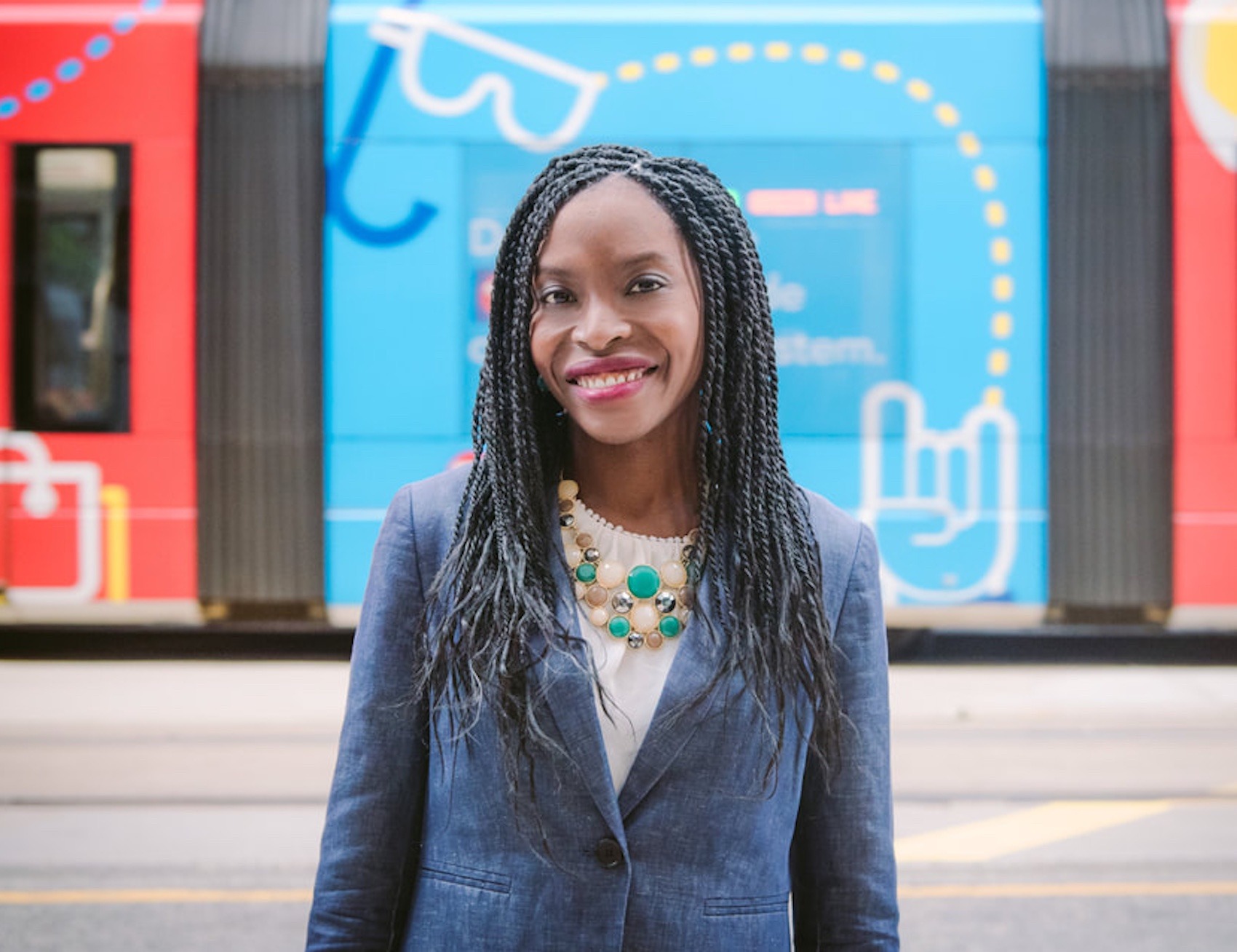Esther Agbaje Wants to Solve ‘The Million Dollar Question’ of Racial Disparities Across Minnesota
If she wins at the ballot box in November, Agbaje would become the state’s first Nigerian American state legislator.

On paper, Minnesota looks like an equitable place to live. The state has a progressive income tax. Its Fiscal Disparities policy shifts tens of millions of dollars of property taxes within metropolitan areas and distributes funds to the school districts within those areas according to their needs.
But even with these fiscal policies only a quarter of Black families in Minneapolis-St. Paul are able to afford their own home. The Black poverty rate is more than four times the poverty rate for white residents. And Minnesota ranks 49th in the country in racial disparities in high school graduation rates.
The reason for her state’s huge racial disparities is “the million dollar question,” Esther Agbaje, a political newcomer seeking her first term in the Minnesota legislature, told The Appeal. “We have all of these institutions that are meant to be progressive and support the people of Minnesota and I think a lot of it [is due to] remaining vestiges of segregation and institutional racism.”
Agbaje, who defeated longtime state Representative Raymond Dehn in the August Democratic primary, is poised to become Minnesota’s first Nigerian American state legislator. She is one of four progressive newcomers who prevailed over established Democratic legislators in the primary—two in the state House and two in the Senate.
To make housing more affordable, Agbaje said she would support legislation to change the income eligibility to qualify for current housing options. Rather than basing eligibility for housing assistance on an applicant’s income as a percentage of the median income in a given county, she said, income guidelines should be indexed to individual cities, or even individual neighborhoods.
Agbaje added that the state should continue to build affordable housing.
The issue is a personal one. While attending Harvard Law School, Agbaje said, she volunteered in a legal clinic representing clients being threatened with eviction—work she continues today as a volunteer with Hennepin County’s Volunteer Lawyers Network Housing Court Project. “It’s heartbreaking,” she said, to work with people who are suffering economic hardship, “and our response as a society is to put them out on the street.”
As a candidate seeking to represent the city where George Floyd was killed by police, Agbaje has joined the call to divest from the police department and invest in social support work. Additionally, she wants to take on “the prison industrial complex”—a system she already challenged in a successful lawsuit that forced the state’s Department of Corrections to provide incarcerated people infected with Hepatitis C with antiviral medication in 2019.
The case “opened my eyes,” Agbaje said, to issues including the kind of food incarcerated people are given and “how we look at punishment,” including solitary confinement, which she would like to prohibit. In addition, she said, although she is still learning about incarceration in Minnesota, she is definitely looking forward to “using my platform to advocate for prisoners and making sure that while they are serving their time, they’re not treated unfairly.”
Agbaje said she’d like to ensure incarcerated people have access to educational opportunities and that they and their families aren’t faced with the “costly imposition” of expensive phone calls as they work to stay connected.
As a Black woman and the child of immigrants, Agbaje is a member of groups who are traditionally marginalized in Minnesota. But she has also had unique, exclusive educational opportunities—including attending an Episcopal boarding school for high school, the University of Pennsylvania, and Harvard.
“My parents”—an Episcopalian minister and a librarian who worked in homeless services— “raised us with the outlook that you’re always giving back to people,” Agbaje said. That outlook is the reason she spent part of her time at Harvard representing poor people facing eviction. It’s also the reason that, while pursuing a master’s in public administration at the University of Pennsylvania, she worked with the city of Philadelphia to create tools to help evaluate the city’s homeless service programs.
As she has traveled in different parts of the country and the world, Agbaje said, she’s had the opportunity to see “people have a lot of the same desires and needs—to come home at the end of the night to their families, to have a good paying job, and to be able to have a stable place to call home.” Those realizations, she said, “are the kind of things that have kept me grounded in my job.”
“I have always had a focus on public service, always a desire to make sure that I’m using my skills and talents to help people and to make the community around me a little bit better,” she said.
